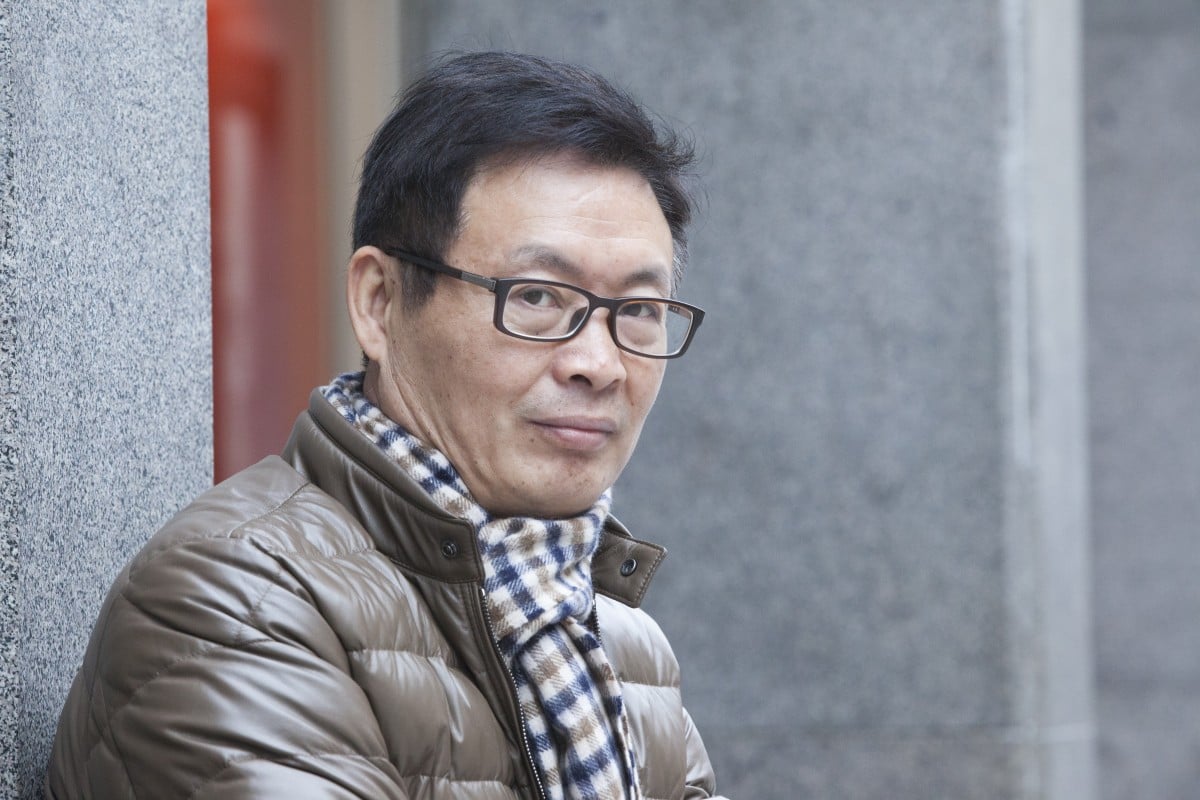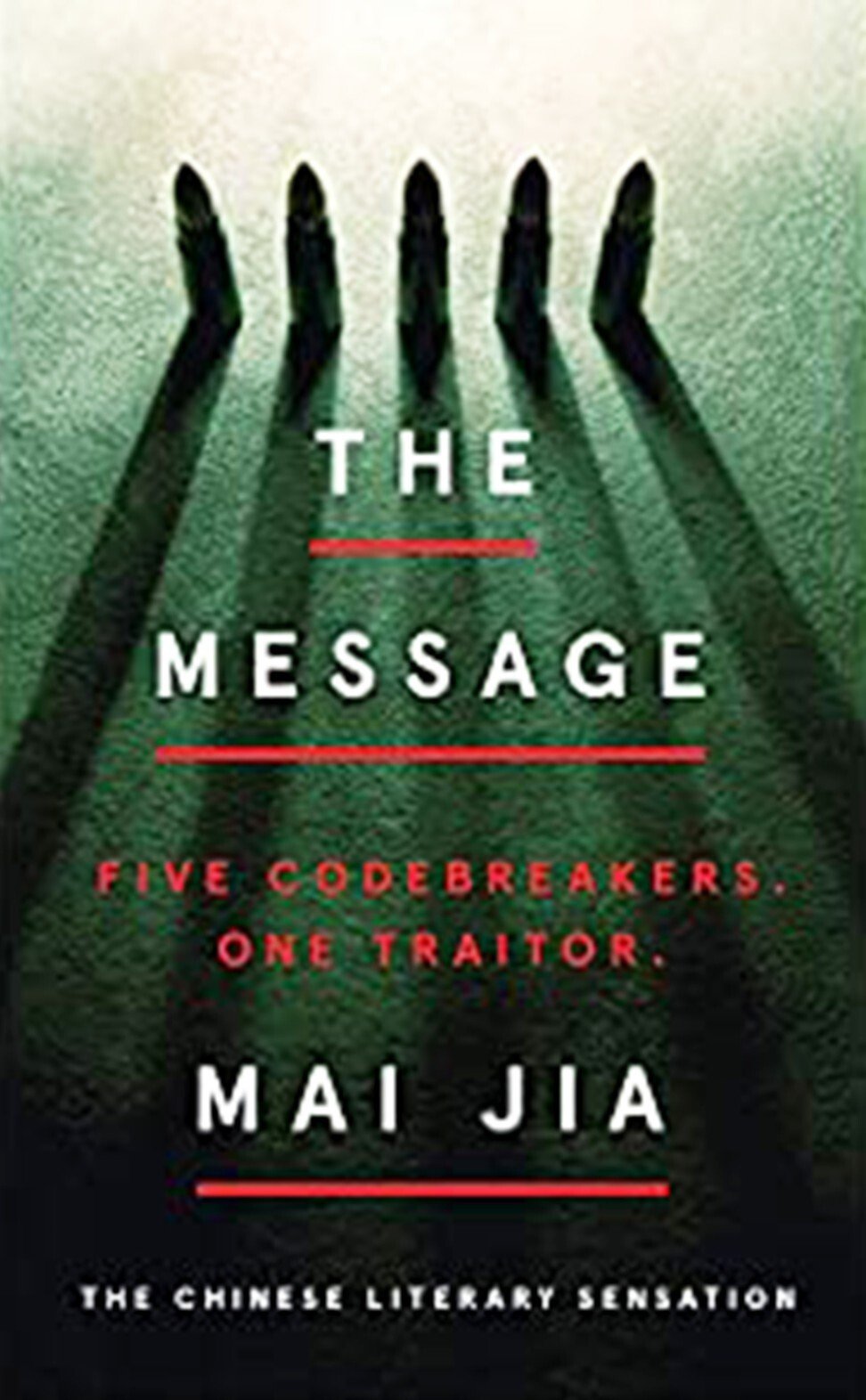Source: SCMP (4/10/20)
The Message, Mai Jia’s flawed wartime novel, can be read as disguised criticism of Chinese Communist rule
A fiction about the hunt for a spy among wartime codebreakers combines with a metafictional narrative about a writer looking for the story. The popularity of this bloated book is puzzling until it is read as a comment on the trauma of the Cultural Revolution
By Mike Cormack

Chinese author Mai Jia, whose best-selling novel The Message was recently translated in to English. Photo: Getty Images
The Message [風聲], by Mai Jia, tr. Olivia Milburn
Head of Zeus
Mai Jia’s books, now being translated and published in English, make great play of his huge sales in China. With global sales of 10 million, he is “the bestselling author you’ve never heard of”, according to the marketing hype.
His first novel, Decoded (2002), earned positive reviews from English-language media when it was translated in 2014 and has now been published in 33 languages. A large part of Mai Jia’s appeal, no doubt, derives from his background in the Chinese intelligence services, with Decoded focusing on cryptography and espionage, although it is set during World War II, which eases matters when publishing in the mainland.
The Message, which was published in Chinese in 2007, has a similar premise. In 1941, five codebreakers (Chief of Staff Wu Zhiguo, Section Chief Jin Shenghuo, cryptographer Li Ningyu, Secretary Bai Xiaonian and Gu Xiaomeng, a subordinate of Li) are taken to a commandeered villa in occupied Hangzhou by the Imperial Japanese Army. They are informed of communist activity in the area and given an intercepted message from a Commander Zhang to decode.

Cover of English translation of The Message.
This turns out to be a simple task, but the message is ominous for four of them: “Right here at our heart there lies / A Communist agent in disguise / Wu, Jin, Gu and Li / Which of you can it be?”
So this is the real plot – there is a mole code-named “Ghost” among the codebreakers. And their job is to find the mole.
You may be imagining close-ups of foreheads dripping with sweat and anxiety, along with dastardly Japanese interrogators, graphic torture scenes and slow reveals of clues and double-crosses.
But The Message is nothing like that. It comes close in the first half of the book, but Mai Jia abruptly changes course in the second, turning to a metafictional narrative of the writer’s pursuit of the story, the history of the villa, numerous transcripts made by the sole remaining survivor, all the while shifting from third to first person.
There are two main problems with this, one structural and one artistic. The structural problem is that the initial “fictional” section concerning the message and the interrogations takes up about 200 pages, and not enough happens for Mai Jia to fill them up, so it is bloated, slow-moving and tedious.
And since we only discover what really happened in the second section, this first part seems to be going somewhere, but ultimately does not. The second section, told in first person but peppered with interview transcripts, is a much easier read. The contrast between the two is palpable, but not in a good way.
The artistic problem is even more troubling. Mai Jia’s writing comes across as clumsy. He does not follow the first rule of fiction, which is to show, not tell. The first section overwhelms the reader with descriptions of what the characters are thinking and feeling as they interact with others. We never inhabit the lived experiences of the characters. (This is not helped by the tic of almost constantly repeating their job titles: Chief of Staff Wu Zhiguo, Police Chief Wang Tianxiang and Colonel Hihara). Instead, all is mediated through the narrator.
“It was as if their worlds had come crashing down around their ears. They were in a state of total shock. Their eyes had gone dark, their legs were trembling, and their minds were blank … They were engulfed in a blind, boundless panic.”
Similarly: “The patience and sensitivity that Hihara had learnt from the weaklings he normally dealt with was now also being sorely tested … He had not anticipated such stubbornness. From the look of things, it would still be a while before he could pack up and leave.”
It is never direct and Mai Jia never engages the senses. How you feel about the descriptions of Hangzhou will depend on whether you have visited the city, as it is evoked in a series of references. The reader is constantly being teased with fragments of a tale while being aware it is not the whole story. This might be clever, even metafictional, but it is not satisfying.
Mai Jia’s prose appears basic to the point of making Dan Brown look like the prince of literary elegance. “He was overstressed and thirsty, so he resolved to go upstairs and make himself a cup of tea.” Another shocker comes when describing the villa: “Everything was top quality and really expensive.” And the violence – usually an opportunity for graphic description – doesn’t rise above the hackneyed: Li Ningyu is “beaten to such a pulp”, she becomes “like a rag”.
This is puzzling because Decoded is a far superior literary achievement, with deft writing and complex explanations. The two books have a common translator, Olivia Milburn, so the change must originate with Mai Jia himself. Has he decided to stick with the bestseller market? If so, he is treating it with contempt.
Which raises the question: why has The Message sold so well – one million copies in mainland China alone? With bestsellers, artistic quality isn’t always a requirement, and catching the zeitgeist, or tapping into a culture, atmosphere or setting, often counts for more. Mai Jia isn’t a zeitgeisty writer: his books are historical fictions. But The Message uses its wartime setting as a clever disguise.
War dramas, with their hackneyed plots and clichéd characters, are popular in the mainland – almost to the point of absurdity. The Message, though, uses the war as cover to refer to the horrors of communist rule, particularly but not exclusively from the Cultural Revolution.
So when Secretary Bai demands of Gu, “Section Chief Jin and Unit Chief Li are both your superior officers, so you must know them well. If you had to choose one of them, which would it be?” Mai Jia is alluding to the paranoid pursuit of political objectives during the revolution.
Later on, Jin is cracking under the pressure: “In actual fact, both Secretary Bai, watching him, and Police Chief Wang, listening to his sobs at the other end of the wire, were hoping that he wasn’t Ghost. They wanted him to pass the test. In order to pass it, assuming he didn’t confess to being Ghost, he had to point the finger at one of the other three, even if that were a complete guess.”
Innocence and guilt are less important than the destruction of social relations. Again, the echoes of the Cultural Revolution are apparent. This was the time of public denunciations and forced confessions. It didn’t matter if what you said was true so long as you pointed the finger.
On the other hand, it could be that the psychology of interrogation is unchanging, and that there is little difference between instances during World War II and the Cultural Revolution. But a war is primarily about physical violence, whereas the Cultural Revolution was more about psychological brutality. Few periods have unleashed such mental trauma and yet been so little commemorated. Even now the safest way to do so is indirectly.
This hidden critique could explain Mai Jia’s popularity in China. Certainly, his novel gives little away about espionage or cryptography – it’s no le Carré – and nobody should read it for its prose. Perhaps not everyone will agree with this reading, but it appears to be the book’s true message.